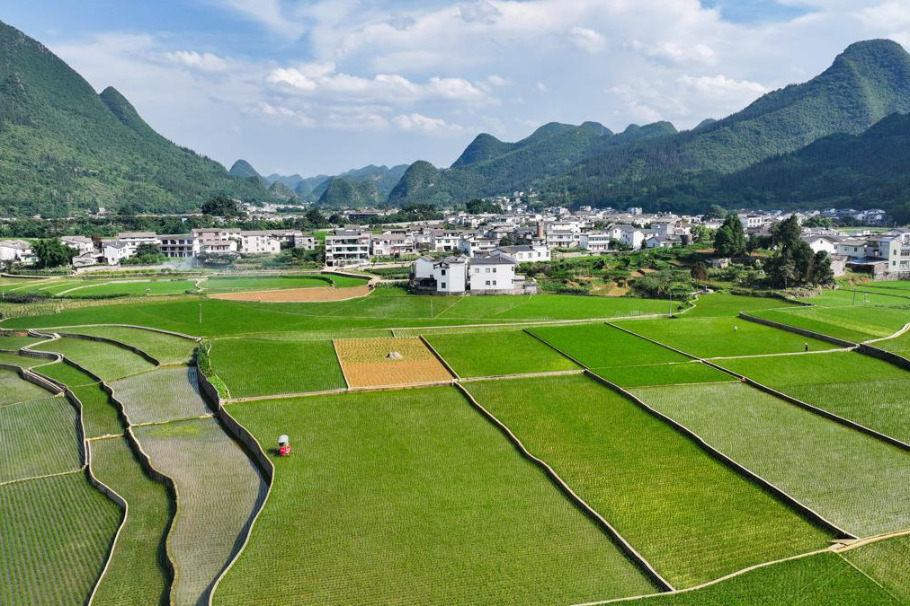Across China: Scientists reveal relationship between shrub encroachment, herbal plant diseases

LANZHOU -- A Chinese research team has uncovered a pivotal regulatory role played by climatic factors in the relationship between shrub encroachment and herbal plant diseases.
Grassland ecosystems were traditionally dominated by herbal plants. However, in recent years, factors such as climate change, overgrazing and rising carbon dioxide levels have led to increasing shrub encroachment into grasslands.
This process not only alters the composition of the plant community but may also reshape the patterns of disease occurrence in herbal plants.
Plant diseases play a significant role in ecosystems, as they can influence competitive relationships among plants, the productivity of grasslands, and the carbon cycle of ecosystems.
In a study covering grassland ecosystems spanning more than 4,000 kilometers within China, the research team from Lanzhou University, located in Northwest China, investigated shrub encroachment into grasslands under varying temperature and precipitation conditions, to study the occurrence patterns of foliar fungal diseases in herbal plants.
The study shows that greater species richness in terms of herbal plants reduces the pathogen load of foliar fungal diseases in both shrubland and grassland habitats.
After shrub encroachment, the pathogen load of herbal plants displayed a distinct temperature dependence -- in colder regions, shrub encroachment diminished the biomass and pathogen load of herbal plants, while in warmer regions, pathogen loads were either not affected or in some cases increased.
This research indicates that the impact of shrub encroachment on herbal plant diseases varies significantly across different climatic contexts.
Therefore, in grassland ecosystem management, shrub encroachment should not be simplistically viewed as a universally negative process. Instead, management strategies should be tailored to local climatic conditions, according to the study.
"For example, in colder regions, curbing shrub expansion may help mitigate herbal plant disease risks, while in warmer regions, controlling shrub density could be considered a crucial strategy to reduce herbal plant diseases," said Liu Xiang, the leading corresponding author of the study.
As global warming continues to intensify, this discovery provides a scientific foundation for the future management and conservation of grassland ecosystems, Liu added.
The study has been published in the journal Nature Communications.
- Xi's upcoming visit to advance China-Central Asia community with shared future
- China's J-10CE fighter jet showcased at Paris Air Show
- HKSAR to unveil second policy statement on digital assets
- Top political advisor stresses jointly guarding Taiwan Strait peace
- Meet Guardians of the 'Desert Oasis'
- PLA conducts patrol in South China Sea, on high alert for destabilizing activities





































